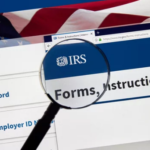Payroll taxes are not only withheld from the employees’ wages but also the employer. They have various payroll tax withholding and payment responsibilities. And they have the important responsibility of withholding the liable social security and Medicare tax from employee’s income under the FICA act and paying their payroll tax.
To be always compliant with the IRS and the department of labor, employers hire tax experts or accountants to manage such things. Still, the employer holds the solemn responsibility of managing payroll taxes.
Therefore, he must also be aware of all such details. The process that seems quite easy at the surface is time taking and attention-demanding.
In this article, we have explained what payroll taxes are and what share of taxes the employer has to pay. This information will help you understand the very basics of payroll taxes and how it works
What are Payroll Taxes?
Contents
Payroll taxes are the ones withheld from employees’ pay and some from the employer and paid to the government. These taxes are a mandatory contribution from both employee and employer.
The payroll-related taxes include:
- Federal income tax
- State income tax
- Local income tax
- Social Security tax
- Medicare tax
- Federal unemployment tax
- State unemployment tax
- State-specific taxes such as Oregon transit tax
Payroll taxes by the employer

The taxes that employers are obligated to pay are:
- Social Security tax: It is shared between employers and employees
- Medicare tax: It is shared between employers and employees
- Federal unemployment tax: Employers pay it only
- State unemployment tax: In most states, it is paid by the employer only
Social Security Tax
- It is obligated to both employees and employers.
Employers pay at the rate of 6.2% of each employee’s wage, and employees pay 6.2% of their wages for 2020 and 2021. The wage base limit for social security tax is $137,700 for 2020 and $142,800 for 2021.
➡LEARN MORE: Taxes on Social Security Benefits
Medicare Tax
- Both employee and employer share Medicare. Its tax rate is 1.45% of an employee’s wages.
Medicare doesn’t have any wage base, but an additional tax is imposed on the employee after earning a certain amount. This would not affect the employer’s liability, and he has to pay only 1.45% of the employee’s wages.
FUTA (Federal Unemployment Tax Act)
- The Federal Unemployment Tax Act is only applicable to the employer. It means that the employer cannot hold the portion of FUTA tax from the employees’ wages.
FUTA tax is 6% which is liable on the first $ 7,000, which the employer pays to each employee during the tax year. Most employers receive the FUTA tax rate credit, which reduces the rate to 0.6%. Thus, the rate becomes 0.6% on the first $7,000 that employees earn.
SUTA (State Unemployment Tax Act)
- State Unemployment Tax is also liable to employers only. However, in Alaska, New Jersey, and Pennsylvania, employees also have to contribute towards the SUTA tax payments.
State unemployment tax rate is determined by each state and is based on a percentage of taxable wages employers pay on each employee’s earnings.
Local Taxes
Employers are obligated to comply with the different local payroll taxes. Local taxes are dependent on where your employees work and live. Various taxes are only imposed on the employers for doing business in a certain locality. To know your local taxes, check with the local tax department for further information.
Do employers also pay income tax for their employees?
Employees don’t have to pay income taxes for their employees. They only have to withhold their employees’ income tax and deliver it to the government.




